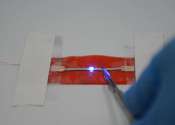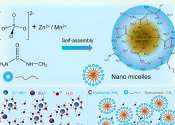Scientists develop solid-state electrochemical thermal transistor
In modern electronics, a large amount of heat is produced as waste during usage—this is why devices such as laptops and mobile phones become warm during use, and require cooling solutions. In the last decade, the concept ...
Feb 21, 2023
0
1428









